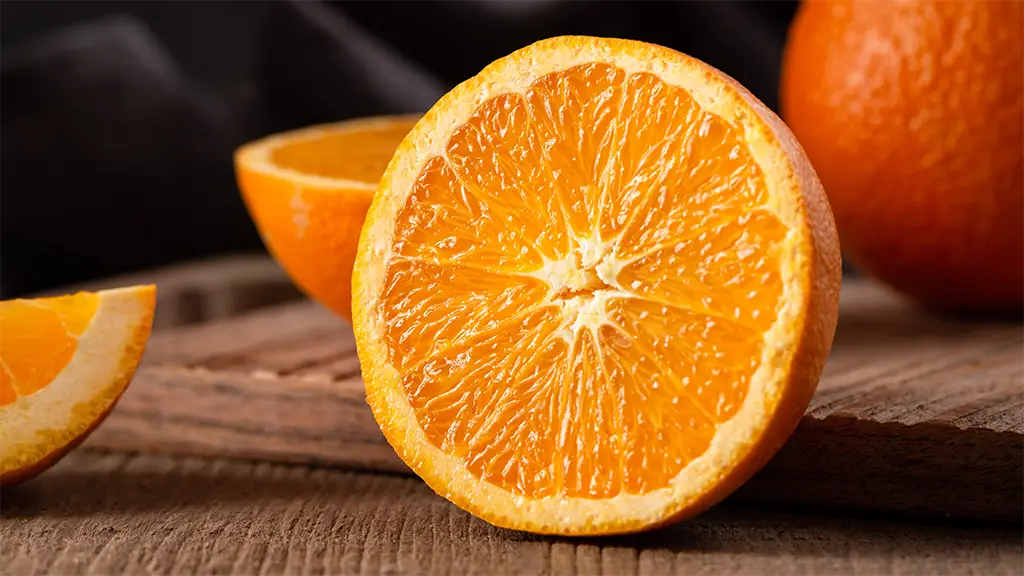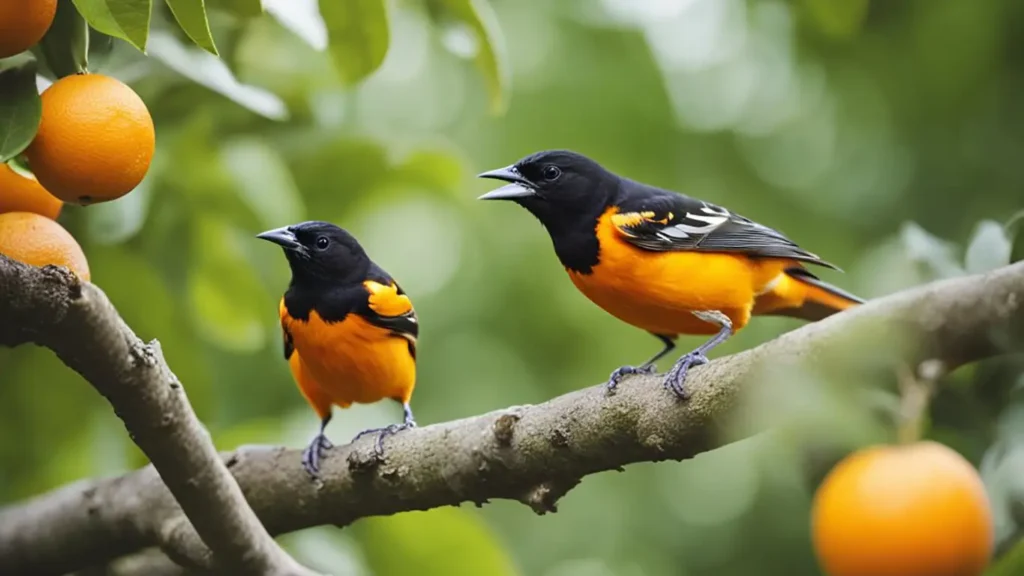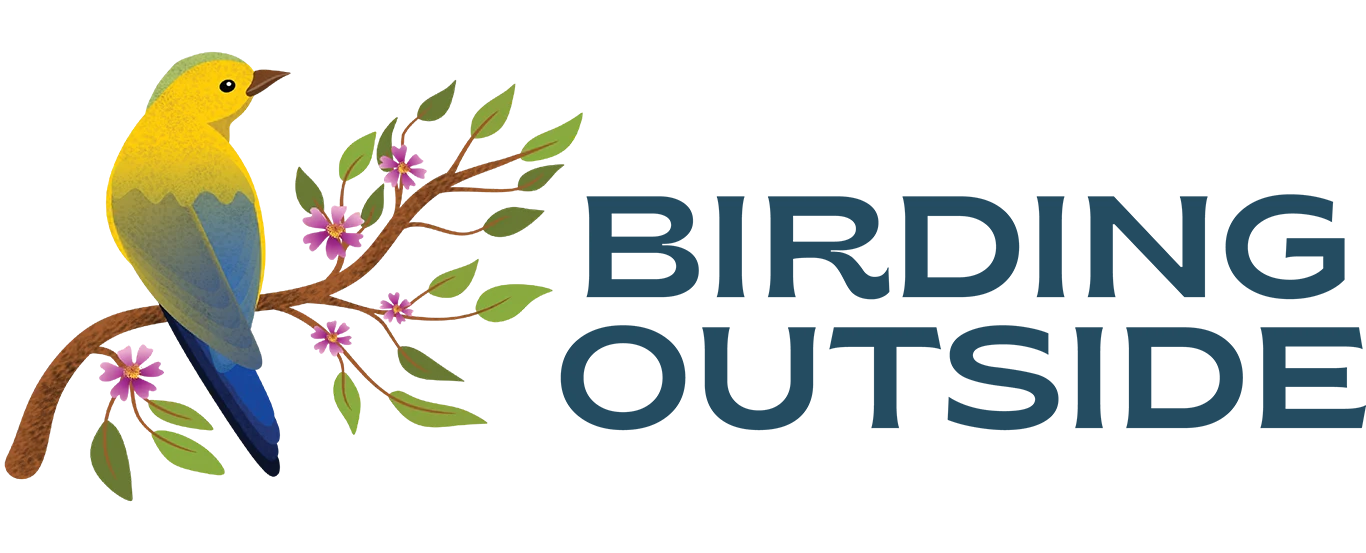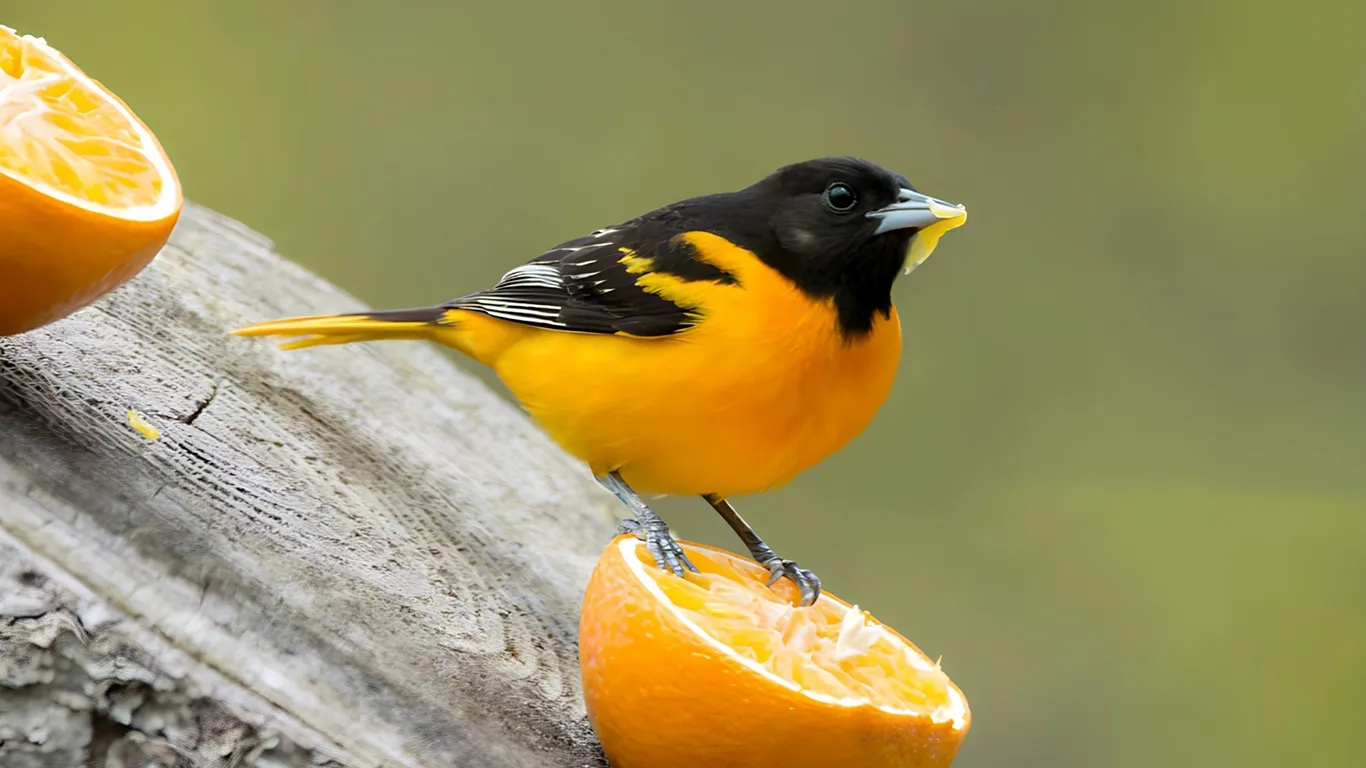If you’ve offered fruits as snacks to your birds, did you ever think of giving oranges? You might wonder whether your feathered friends would approve of this tangy fruit. It turns out that birds love oranges. The fruit is widely consumed by both domestic and wild birds.
Oranges are an excellent choice if you want to add variety to your bird feed. Expect a variety of bird species in your yard as well. Besides, oranges could be a great vitamin C source, making them a healthy choice for your bird food table.
So, continue reading the article to know more about what birds eat oranges and how and when to serve them.
Which Birds Enjoy Eating Oranges?
Birds can definitely enjoy oranges. They’re packed with vitamin C, making them a top pick for bird snacks. Want to know which birds love oranges? Let’s check out the list below:
- Orioles
- Woodpeckers
- Grosbeaks
- Cedar waxwing
- Icterids
- American robin
- Mimid
- House finch
- Eastern bluebirds
- Robins
- Common Grackle
- Gray catbirds
- Northern mockingbirds
- Red-bellied woodpeckers
- Western tanagers
- Brown thrashers
- Scarlet tanagers
- Rose-breasted grosbeaks
- American crow
What Are the Benefits of Birds Eating Oranges?
Oranges are not only delicious but have several health benefits for birds. It provides vitamins and minerals. Not all birds may differentiate the taste, but it could still be refreshing and hydrating.
If you are looking for a direct source of vitamin C for your bird, this fruit could be your choice. Moreover, oranges are loaded with carbohydrates, sugar, and fiber.
Now, let’s explain how all of these matter! Vitamin C is found to reduce stress in birds during breeding and molting. It also helps in fertility and digestion, increases immunity, and controls weight. Also, know that carbohydrates can help provide rapid energy to birds.
Nevertheless, too much vitamin C could cause diarrhea in birds and, worst cases, affect the liver. So it would be best not to give too many oranges.
How Can I Feed Oranges to Birds?
Both domestic and wild birds would only eat the fleshy part of the orange. The peel is tough for birds, especially the smaller ones, to bite into. Hence, offering them the flesh part is the best way to serve the fruit.
You will have to prepare the fruit in such a way that it exposes the flesh. Doing it in the right way can help you attract many neighboring birds as well.
However, you need to limit the amount. Birds make their own vitamin C in their livers. Therefore, they may not need this extra vitamin C. Too much vitamin C might cause intestinal problems and, in some cases, damage the liver. Besides, the juice is acidic and high in sugar content.
So when offering oranges to birds, give them in limited quantities and occasionally. Talk to a vet if you need help.
What is the Best Way to Prepare Oranges for Birds?

When preparing oranges for the birds, remember to display the fleshy part. This will make it easier for them to spot and eat.
Also, orange peels might be hard for some birds to bite through. So, divide the oranges into two halves. Leave the peel and stick the orange to something to make it stand upright. It should look like a bird table.
When the birds notice the orange, they eat from the juicy middle parts and leave the peels off. The birds will scratch the seed, which is not harmful if swallowed.
Spread the oranges in multiple places. It helps to reduce the spreading of bird diseases.
If you place the orange in a feeder, place it within 10 feet of trees or shelter. Ensure to put a water source, trees, and flower plants nearby.
Finally, do not offer concentrated oranges or juice. They may contain processed ingredients and get stuck on the birds’ wings. A bird with sticky wings would find flying and moving around difficult.
When is the Appropriate Time to Put Out Oranges for Birds?

Spring is one of the best seasons to put out oranges for the birds in the garden. However, many birds prefer them during winter as well. Since insects and other feeds may be scarce in winter, they may depend on oranges for snacking. You may also notice a decrease in birds in your yard after winter.
One of the most prevalent examples of birds that eat oranges is the oriole. Spot them in your backyard during particular months, especially from early April to late May. This is the best time to offer them oranges. (Cornell Lab of Ornithology)
Additionally, you can put oranges all year round, depending on the birds in your yard, such as woodpeckers and robins.
Is a Bird Feeder Necessary to Offer Oranges to Birds?
While in some cases, it is not necessary to install a bird feeder, in some situations, it is a must. If you target wild birds around your house, you may put half the oranges on sticks, posts, or trees.
It is possible, however, that other wildlife may invade the feeding area if it needs to be adequately protected. This is when a bird feeder may be necessary.
The platform feeder is one of the best feeders to put out oranges for birds. Plus, placing a few half-oranges in suet feeders can prevent larger birds from invading.
Also, impaling oranges on tree branches or nails could stop many animals and big birds from reaching them. It is necessary to figure out how to feed based on whether or not birds can eat oranges from your setting.
Finally, discard the remains and wash the platform when the fruits become stale and moldy.
What Other Fruits Can I Feed to Birds?
Though birds can eat almost every fruit, some can harm your bird because of toxicity or digestion problems.
When trying to search for an answer- Can birds eat oranges? We have come across the following fruits that are safe for birds to eat,
- Apples (no seed)
- Bananas (no skin)
- Plums (no seed)
- Pears (no seed)
- Apricots (no seed)
- Cherries (no seed)
- Grapes (no seed)
- Strawberries
- Raspberries
- Blueberries
- Blackberries
- Cranberries
- Raspberries
- Kiwifruit
- Pomegranates
- Passion Fruit
- Mango
- Honey Dew
- Water Melon (no seed)
- Rock melon & more
Final Words
Are birds able to consume oranges? A tangy, succulent fruit like this would keep birds energized and hydrated. In addition, it contains vitamin C, carbohydrates, and fibers.
Despite this, we should not give too many oranges or make it a daily habit as birds feed. It may result in excessive vitamin C and sugar consumption, affecting birds’ health.
Besides, cut the orange in half while serving. This makes it easier for birds to notice and eat without hassle. You may sometimes need to introduce a bird feeder to prevent other wildlife from entering.
FAQs About Can Birds Eat Oranges
Is it safe to feed oranges to birds?
Yes, it is perfectly safe to feed oranges to birds. When you introduce the fruit, cut them in half and hang or stick them on trees or place them on feeders. You cannot, however, offer it daily. Considering birds produce their own vitamin C inside their bodies, too much vitamin C from oranges might overwhelm their health. Finally, though the birds do not prefer the peel of oranges, seeds are harmless.
Do birds eat orange peels?
No, birds do not eat orange peels. It won’t be easy for many birds, especially the smaller species, to peck through the peels and get to the fleshy part. So do not offer a whole orange to the birds. Instead, cut them in halves and place them so birds can quickly locate and eat the fleshy parts.
Do birds eat oranges during the winter season?
Yes, some birds prefer oranges during winter. It is due to the lack of food, such as seeds and insects, during this time of the year. It is also possible to see fewer birds in your yard during other seasons, such as the summer, because plenty of food is available in nature.


